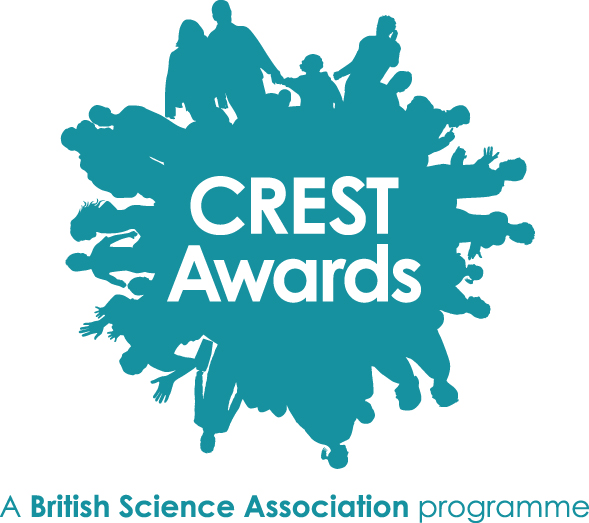The British Science Association have provided our second case study looking at their flagship CREST Awards scheme Youth Panel.
"The British Science Association does a lot of work with young people. Our British Science Festival and National Science & Engineering Week have specific schools outreach elements, and our dedicated Young People’s Programme inspires under 18s to engage with science through programmes like the National Science + Engineering Competition, and CREST Awards. As they are such a crucial part of what we do – we firmly believe in getting young people involved in the evaluation and development of all our projects. The CREST Youth Panel was set up for exactly this purpose, and based on its initial success, the scope of the group has quickly expanded. The CREST Youth Panel is now a widely consulted group, both internally and externally, for those seeking to evaluate the impact of projects aiming to reach this extremely important audience".
CREST is aimed at 11-19 year-olds and is the only UK-wide scheme to accredit STEM (Science, Technology, Engineering & Maths) projects. Young people conduct their own creative problem solving through mini research projects and awards are made at four levels: Discovery, Bronze, Silver and Gold. At the Gold and Silver levels scientists and engineers from industry and academia normally mentor the projects. CREST projects feature heavily at the finals of our National Science + Engineering Competition.
Since the Department for Education CREST Expansion Project started in 2009, the British Science Association has developed two initiatives around the theme of ’Youth Voice’ – the CREST Youth Panel and the CREST Alumni Network. Both initiatives encourage and provide a platform for scheme participants to feed into the CREST Award Scheme’s development, and more broadly the British Science Association programmes and external projects. We are committed to encouraging feedback from young people in to any of our projects which are designed for that age group – we believe it is a crucial element of any strategy to consult with your target audience, and the CREST Youth Panel has provided us with an important way to do this. The Youth Panel meets twice a year. Throughout the year, the panel are also invited to participate in online discussions, and provide feedback on any programme we are working on, which aim to influence their age group.
Their feedback has allowed us to evolve and hone the CREST Awards, using the critical evaluation from the peer group. It has allowed us valuable insight in to the psychology of the target group the Awards are aimed at. We evaluated the competitive landscape to see how we compared to the range of other award/project schemes available to young people, through discussion groups with the panel. We saw very clearly from this how much this age group respected and valued the Duke of Edinburgh Award Scheme. This led us to examine the potential to work more closely with the charitable body running the scheme, and has resulted in a fledgling partnership.
Although in its early stages, this working relationship has huge potential. CREST Awards are now formally recognised as one of the potential routes young people can take to satisfy the ‘develop a new skill’ section of the Duke of Edinburgh Award. This exposure to a new audience represents a huge potential for expanding the uptake of CREST Awards, as well as providing those who have already completed CREST Awards to gain further recognition for their project work. In addition to helping us develop useful new strategies, the panel have been invaluable in giving honest, critical feedback on our suggested developments. In focus-group style settings, many new marketing materials have been reviewed and critiqued by the members of the panel, who have provided suggestions to help tailor the materials to be more relevant to their age group. This feedback has been incorporated in to the designs – which have been very well received by the target audience.
Our British Science Association programmes such as the Science in Society team’s Engineers: Engage! project, have been assisted by the CREST Youth Panel, who have helped develop materials for training workshops for scientists and engineers about public engagement. For example, members of the Youth Panel have written documents outlining the most memorable careers advice they receive at school. This has been used as a tool to give those developing public engagement projects, a clearer idea of who the most important influencers are, when it comes to young people making career decisions. This was a comprehensive time-line which showed a clear pathway from the main influence being family, to peers, and then formal careers advice and guidance, as the young person progressed through the education system. Those taking part in the workshops found the resource extremely useful as it helped to clarify thinking and effectively target their project at the audience that would benefit most. Our Youth Panel have also worked with a number of external patterns, such as the Science Council and Royal Society.
The impact this youth panel has had on CREST has been evident from the feedback gathered on panel-reviewed materials. We were also keen to test the impact that being part of the Youth Panel was having on its members. We carried out an online evaluation, via an online survey of panel members. We also informally gathered feedback from some of their parents. The feedback overwhelmingly showed that the students appreciated the opportunity to be a part of the Youth Panel, and valued the fact that their views and opinions were taken seriously and respected. As such, their willingness to provide more local support for British Science Association events (and STEM promotion generally) was notably increased.

Leave a comment